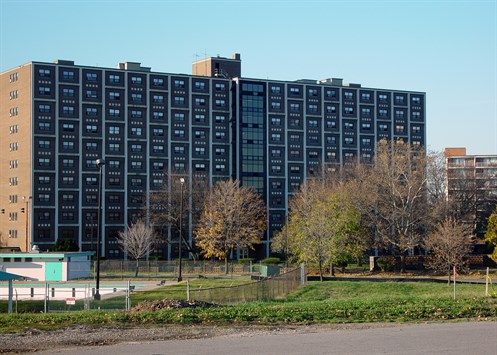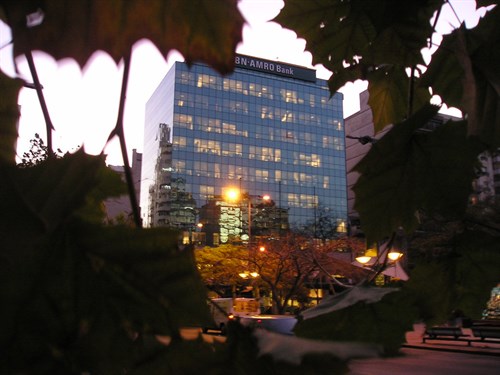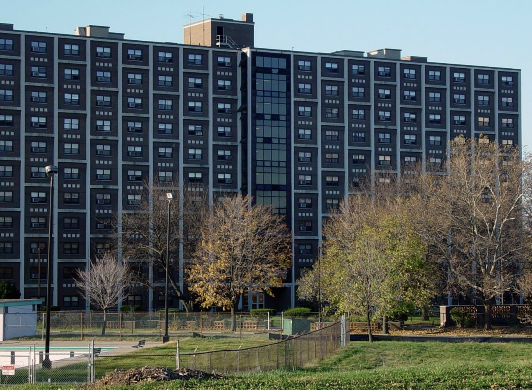The cookie settings on this website are set to ‘allow all cookies’ to give you the very best experience. If you continue without changing these settings, you consent to this – but if you want, you can change your settings at any time at the bottom of this page on our privacy page.
The Process of Renting a Commercial Property
On our blog and on our website, we've covered a wide range of aspects related to renting commercial property. However, we going to take a look at perhaps the most important thing for anyone who is renting for the first time: the process itself.
When you decide to take out the first lease, what exactly happens? Here's our step-by-step guide:
Your first priority should of course be to find the perfect property. This isn't a decision you should rush, of course, and we'd recommend taking a look at our recent guide here.
Once you've made your decision, the next part of the process will be negotiating the heads of terms with either the landlord themselves or their hired surveyor. The heads of terms will normally include the following areas:
- the landlord's details
- your details
- the guarantors details
- the details of the property
- the length of the lease
- rent payments and any rent review dates
- the details of the deposit
- any services that will be provided by the landlord during the course of the lease
- who is responsible for paying insurance on the property
- the permitted use of the property
In addition to the above, it'll also cover areas such as whether under-leases are permitted, whether the landlord needs to carry out any work before you take on the lease and who will be responsible for carrying out any repairs on the property.
Whilst the heads of terms are being negotiated, you should remain in contact with both the landlord and their solicitors - as well as any solicitors that you've chosen to represent your interests - and should accept any professional advice when it's offered.
Note: There will typically be a reasonable amount of drafts and amendments to the lease, as both parties will want to be sure they're satisfied with the agreement.
Once the heads of terms have been agreed, you'll sign them first. Then, a copy will be sent by the letting agent responsible to the landlord's solicitors, who will pass it on for them to sign.
Following this, the landlord's solicitors will send across the following information to the agent:
- The draft lease
- Evidence of the landlord's legal ownership of the property
- Any necessary replies to standard enquiries you might have made about the property
- Any necessary rent deposit deed, as well as any licenses for alterations
Once the solicitors have completed the necessary work, you'll sign the lease and make any necessary payments (rent, the first month's deposit, etc), and the lease will be dated.
Then, a copy will be sent to you for your records. Congratulations! You've rented your first commercial property, and are ready to start work.

Registering a commercial lease
In some circumstances, it may be necessary to register the commercial lease, which is NOT the same as signing one. You can choose to have your solicitors do this for you, if you prefer, but if not the process isn't too complicated. Here's what you'll need to know:
- A commercial lease must be registered if the period of the lease is more than seven years. For leases that are less than this, registrations isn't typically needed. (This is the case for sub and head leases, as well).
- If you're going to register a commercial lease with the Land Registry, you'll need to do so within two months of the lease being created.
- Any registered lease that is transferred must be registered again.
- What is the benefit of registering a lease? Simply that it makes the lease a 'legal estate' and stronger in the eyes of the law as a result. Should either party break the terms, a registered lease will be easier to enforce in court. The position of both parties is weakened if the lease isn't registered.
- The tenant is responsible for registering the lease.
Your local governing body is responsible for managing any disputes that arise regarding a lease, NOT the body where the property is located.
For more information on registering commercial leases - head to this guide.
The different types of lease
Typically, commercial leases fall into one of several types, which we'll go through here.
Gross leases are leases in which the landlord is held responsible for paying the majority of extra costs such as property tax, insurance and maintenance charges. They're typically easier to manage, being a single one-off payment, but can often be more expensive; the landlord will often choose to increase the amount of rent in order to cover their extra costs.
For businesses, of course, the benefit is obvious: a single one-off cost will allow you to manage and plan your finances with more accuracy in future.
Net leases are the most common form of lease on the commercial property market. The tenant is required to pay a portion of the extra costs that the property incurs (and on some occasions, may be responsible for all of them). In turn, net leases are broken down into three main types:
- Single net leases, where taxes are the responsibility of the tenant, and the landlord is responsible for meeting the other costs.
- Double net leases, where tenants are responsible for property taxes and insurance premiums, and the landlord is responsible for structural and maintenance costs.
- Triple net leases, where the tenant is responsible for all property costs as well as the rent.
Percentage leases, meanwhile, involved the tenant paying a base amount of rent in addition to a percentage of any revenue the business will earn whilst using the property. These are most common in areas such as retail parks or shopping centres.
You can find out more about these different types of leases in our specific guide Types of Commercial Lease.
Deposits
A key part of the letting process will be organising the deposit. Under a commercial lease, damage deposits are usually the equivalent to one month's rent, but may be much higher depending on the type of property. In some cases, it can reach as much as three month's rent.
A commercial lease works in much the same way as one found in private property. The landlord will hold your deposit during the lease, and should you fail to uphold the terms of the lease - either by damaging the property or by not paying the rent - the landlord will then use the security deposit to recoup their losses.
Assuming you adhere to the lease terms, you'll receive the deposit back at the end of the tenancy, minus any charges for repairs or restoration required on the property.

The main disputes
Typically, any disputes will arise from the following areas. They'll all be ones you're likely aware of, but it's worth looking at why they go wrong:
- Duration and length of the lease. Typically, issues will arise if the business wishes to move or fails and you're still obligated to pay the remainder of the term.
- Guarantees. Again, if the business fails you may have to pay the rent or repair using your personal assets, should you not carefully look at the terms of the lease.
- Rent. Needless to say, not paying the rent can result in serious actions such as court action, bailiffs or bankruptcy.
- Rent reviews. Unless your lease is very short, there will normally be rent reviews at some point. Look out for the 'Upward Only' reviews, which means that your rent cannot fall whatever the future value of the property.
- Repairs. We've mentioned this previously, but it's worth emphasising that repairs often cause disputes, if one - or both - parties are unsure who is responsible for them.
If you're at all concerned about any aspects of meeting the lease, you should ensure that you ask the landlord for alternatives to the issues that are concerning you. It's possible to ask for shorter terms, limitation of repair liability or an alternative method of rent review.
The landlord isn't obligated to offer alternatives, but it's certainly worth asking: they may be happy to help if they're eager to get the property off the market.
Key Traps
Though it's rare that landlords will actively go out of their way to trick you on some aspect of the lease, there ARE several fairly common problems that you should take into account before you start negotiating the lease. These are slightly different from the above points, in that they're not found in every situation, but can still occur.
- Not researching the property with enough depth. It's not the landlord's job to ensure the property meets the needs of your business: that's your responsibility. Remember that surprises can spring up from anywhere. The local authority might, for example, be planning to close a key access road or path that you're relying on for customer footfall.
- VAT. Your company not being registered for VAT does NOT mean you can guarantee VAT costs not being included on your lease. Again, this is something you should check.
- Car parking. A property having a car park attached does not guarantee that it's included in the cost of the rent. It may be the car park is communal, or is owned by a private firm. Ensure you look at this.
- Limited companies. If you run a limited company, you may be under the assumption that - should the company become insolvent - the lease will become invalid. This is NOT guaranteed, and will almost certainly be highlighted during the lease negotiation.
- Challenging costs. In some leases, you may be able to challenge increases in rent, which isn't something people are always aware of. Of course, this will once again depend on the terms.
- Property uses. As we mentioned previously, the lease will specify which uses are permitted. It's important to be careful here, as this can affect the cost of the lease. The more broad the potential future uses, the more valuable the property will be considered to be.
You'll obviously be able to communicate with experts during the negotiation, so be sure to ask them about other potential traps.
Useful Links
The Code for Leasing Business Premises
Model heads of terms from the Code
Code of Practice for Landlords
You can download a PDF version of this guide here:
If you would like to know more about how Pall Mall Estates can help with your commercial property needs, call us today on 020 8986 7221 to speak to one of our experts.
Pall Mall Estates - Helping you move with our low cost, high value, business space to let throughout the UK.
Pall Mall Estates have a wide range of low cost commercial properties across the UK.
Take a look at our available spaces here or get in touch with our experienced team here.



